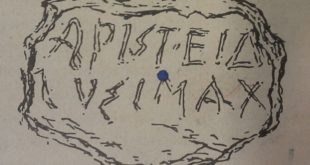The heroism of Harmodius and Aristogeiton was a myth, but Athenian democracy was not. In the two great wars of the fifth century — the Persian and the Peloponnesian — the Athenians clearly felt they had what would now be called a “way of life” which was worth fighting for. Cleisthenes, although he was of nobler blood than Solon, gave more power to the poor than Solon had done. Nearly all Athenian citizens now had a vote in the Assembly, a body which approved laws discussed in the Council of Five Hundred. The Five Hundred were elected by the citizens …
Read More »Tag Archives: juryman
The Golden Age of Athens 480 B. C. to 430 B. C.
When Themistocles and the people of Athens came home from Salamis, they found only the ashes of a city. Their houses and shops were gone. The Acropolis was littered with chunks of broken limestone and smoke-blackened statues, the ruins of their sacred temples. The years of war had taught the Athenians courage and victory gave them pride and hope. They began to build again. While the citizens planned new houses, Themistocles planned new walls – walls around the city, walls to protect the harbour at Piraeus and walls along the four miles of road that connected the two. When they …
Read More »
